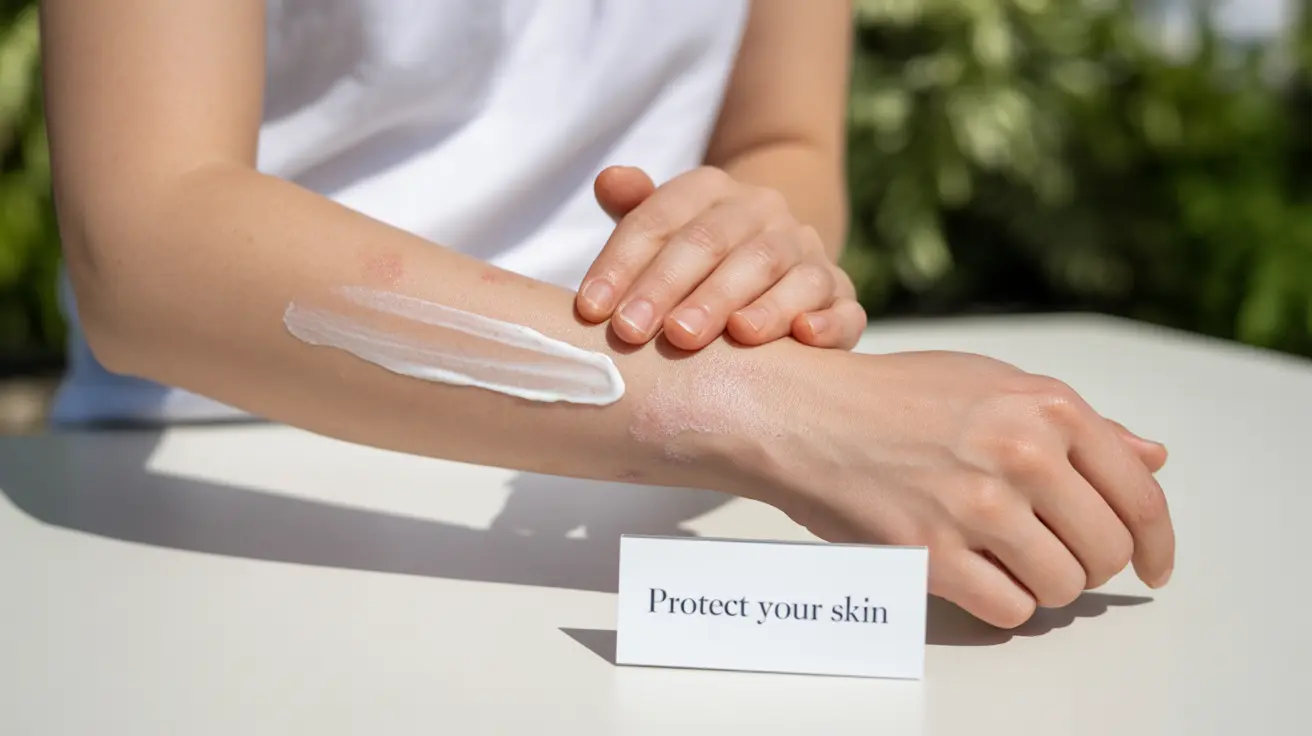For people living with eczema, understanding the relationship between sun exposure and their skin condition is crucial for managing symptoms effectively. While some individuals report improvements in their eczema with moderate sun exposure, others may experience flare-ups from heat and UV radiation. This comprehensive guide explores the complex relationship between sunlight and eczema management.
The Benefits of Sunlight for Eczema
Moderate sun exposure can potentially benefit some people with eczema through several mechanisms. UV rays from sunlight have natural anti-inflammatory properties that may help reduce skin inflammation and itching. Additionally, sunlight helps the body produce vitamin D, which plays a crucial role in skin health and immune system function.
However, it's important to note that the benefits of sun exposure for eczema can vary significantly from person to person. While some individuals may see improvements in their symptoms, others might experience the opposite effect.
When Sun Exposure Can Worsen Eczema
Despite potential benefits, sun exposure can sometimes trigger or worsen eczema symptoms. Heat from intense sunlight can cause sweating, which may lead to skin irritation and itching. Additionally, some people might experience photosensitivity, where their skin reacts negatively to UV radiation.
Common Sun-Related Triggers
- Excessive sweating
- Dehydration
- Sunburn
- Heat rash
- UV sensitivity
Safe Sun Exposure Guidelines for Eczema
When spending time outdoors, people with eczema should follow specific precautions to protect their skin while potentially benefiting from moderate sun exposure:
Timing and Duration
Choose early morning or late afternoon hours for outdoor activities when UV rays are less intense. Start with short exposure periods of 10-15 minutes and gradually increase if your skin responds well.
Protective Measures
Always use broad-spectrum, hypoallergenic sunscreen specifically formulated for sensitive skin. Wear loose-fitting, breathable clothing and seek shade when the sun is strongest, typically between 10 AM and 4 PM.
Understanding Phototherapy
For some individuals with severe eczema, controlled UV exposure through medical phototherapy might be recommended. This treatment differs from natural sunlight exposure as it's administered in a controlled medical setting with specific wavelengths of UV light.
Phototherapy can be particularly effective when other treatments haven't provided sufficient relief, but it should only be undertaken under medical supervision.
Frequently Asked Questions
Does moderate sun exposure help improve eczema symptoms?
Moderate sun exposure can help some people with eczema by reducing inflammation and increasing vitamin D production. However, results vary among individuals, and careful monitoring of skin reactions is essential.
Can too much sun or heat make eczema worse or cause flare-ups?
Yes, excessive sun exposure or heat can trigger eczema flare-ups through increased sweating, dehydration, and direct UV damage to the skin. Some people may experience heightened sensitivity to sunlight.
What sun protection measures should people with eczema take when outdoors?
People with eczema should use hypoallergenic, broad-spectrum sunscreen, wear protective clothing, avoid peak UV hours, and stay hydrated. It's important to choose sun protection products specifically formulated for sensitive skin.
How does vitamin D from sunlight affect eczema and skin health?
Vitamin D from sunlight can help strengthen the skin barrier and support immune system function, potentially improving eczema symptoms. However, vitamin D can also be obtained through supplements if sun exposure isn't suitable.
When should someone with eczema consider phototherapy or consult a doctor about sun exposure?
Consider consulting a dermatologist about phototherapy if conventional treatments aren't providing adequate relief, or if you're uncertain about how sun exposure affects your eczema. Professional guidance can help determine the most appropriate treatment approach.




